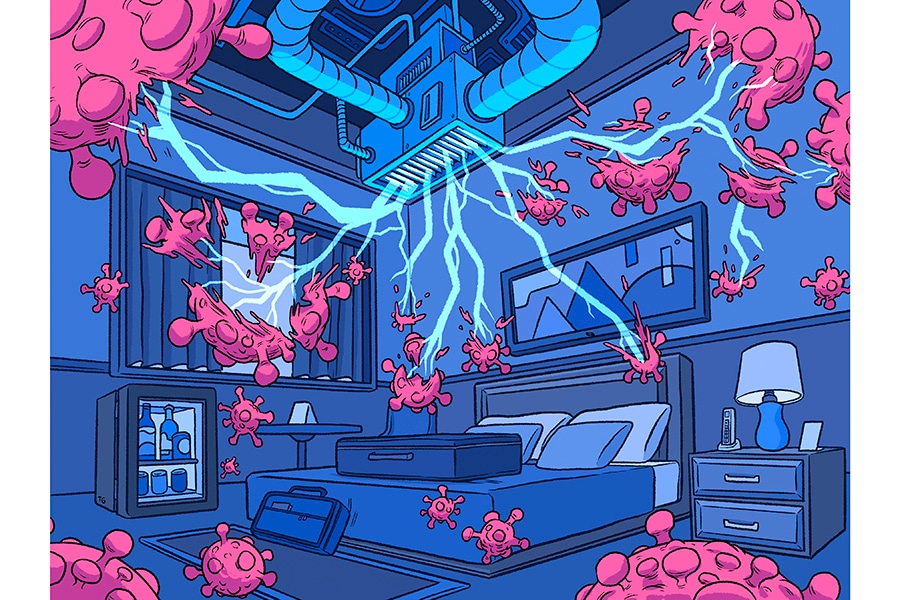
The newest hotel amenity? Virus-scrubbed air
Hotels, and even some cruise ships, are installing state-of-the-art filtration systems that claim to tackle the coronavirus where it is believed to be the most dangerous: in the air
 Hotels, and even some cruise ships, are installing state-of-the-art filtration systems that claim to tackle the coronavirus where it is believed to be the most dangerous: in the air.
Hotels, and even some cruise ships, are installing state-of-the-art filtration systems that claim to tackle the coronavirus where it is believed to be the most dangerous: in the air.
Image: Tom Grillo/The New York Times
When the coronavirus first hit, hotels quickly adopted enhanced cleaning polices, including germ-killing electrostatic spraying and ultraviolet light exposure in guest rooms and public areas.
But as research on virus spread has shifted focus from surface contact to airborne transmission, some hotels and cruise ships are scrubbing the very air travelers breathe with a variety of air filtration and treatment systems.
“The best amenity that any hotel could provide under those circumstances is safety, especially in the air,” said Carlos Sarmiento, the general manager of the Hotel Paso del Norte in El Paso, Texas. The 1912 vintage hotel recently reopened after a four-year renovation that included installing a new air purification system called Plasma Air that emits charged ions intended to neutralize the virus and make particles easier to filter out.
With the new air-scrubbing campaigns, hotels are following airlines, many of which have hospital-grade, high-efficiency particulate air (HEPA) filters that are said to be over 99% effective in capturing tiny virus particles, including the coronavirus.
Hotels and cruise ships can more easily ensure social distancing than airplanes, but, given the recent research on the importance of enhanced air filtration, some are adding air-cleaning dimensions to their heating, ventilation and air conditioning (HVAC) systems, which already aim to remove dust, smoke, odors and allergens.
©2019 New York Times News Service




